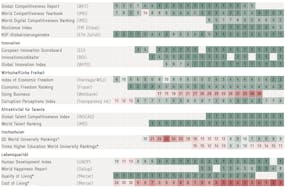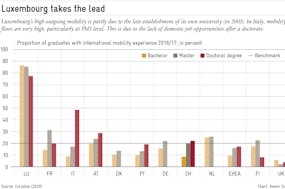Digitization is changing the way we produce, invest, consume and interact. But beyond the hype, what is the real importance of the digital sector compared to traditional parts of the economy? And what is its value in our daily lives?
Soaked in digitization
First, we must distinguish between the “digital sector” and the “digital economy”. The latter covers the whole economy, since there is nothing today – from agriculture to education – that does not use digital technology. According to a recent Dutch study, 86 percent of companies have an online presence.

Back to the digital Stone Age? Semiconductors from a collection of historical IT equipment. (ETH-library Zurich, archive)
Conversely, the digital sector is more narrowly defined. It covers the core activities of digitization, such as ICT services, online platforms and related parts of the “sharing economy”. According to a new publication by the International Monetary Fund (IMF), the digital sector accounts for only 5 per cent of developed economies in terms of added value, income or employment. Based on this estimate, Switzerland would be one of the world’s most digitized countries. Our digital sector accounts for 8 per cent of GDP, about the same as the financial sector.
Free but valuable
However, this measurement of the productive footprint of digitization underestimates its value to consumers as many digital transactions – from Facebook to Google – are free. Hence they do not directly contribute to GDP.
Economists at the MIT have tried to estimate what it would cost to persuade consumers to completely refrain from using online services. They estimate an average of $14,000 per year would be required to persuade someone to stop using the services of search engines. The second most popular category of digital products – e-mail – would carry a “waiver value” of $8,400, followed by digital maps. In total, it would need up to $25,000 (the equivalent of CHF 2,000 a month) to persuade people to abandon internet services. This illustrates the enormous value of the digital world, which goes far beyond the measurable added value of production.





